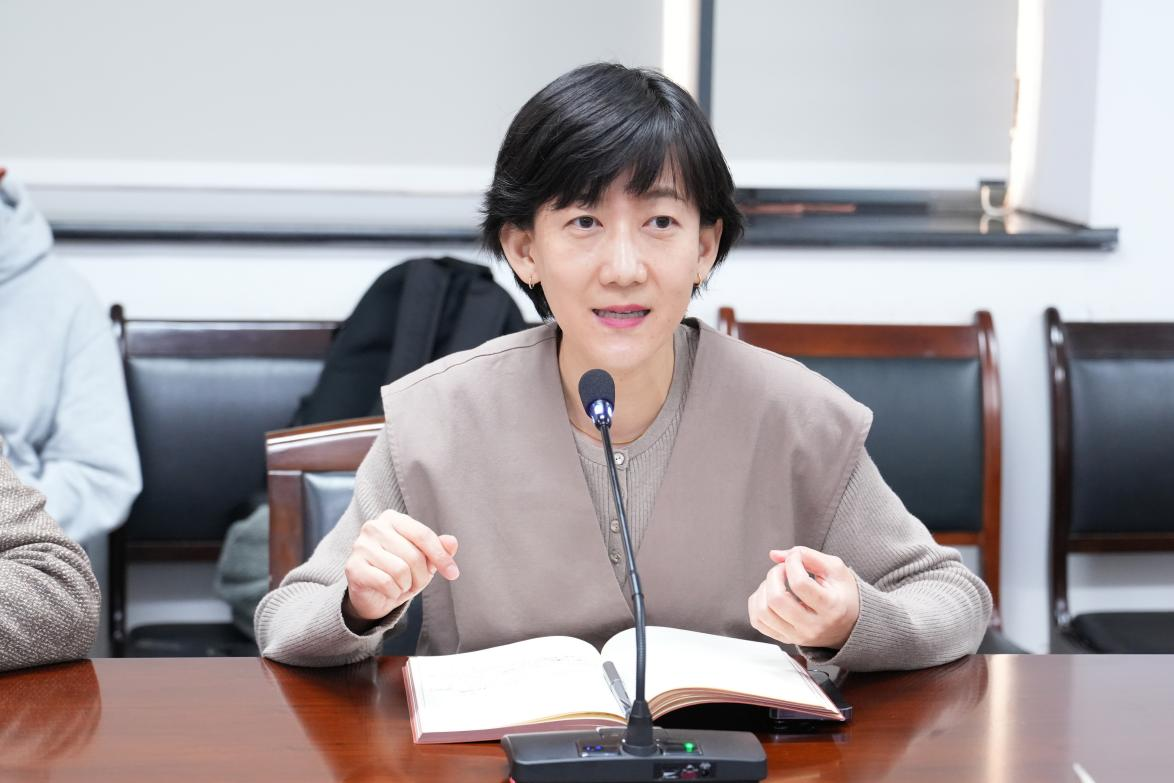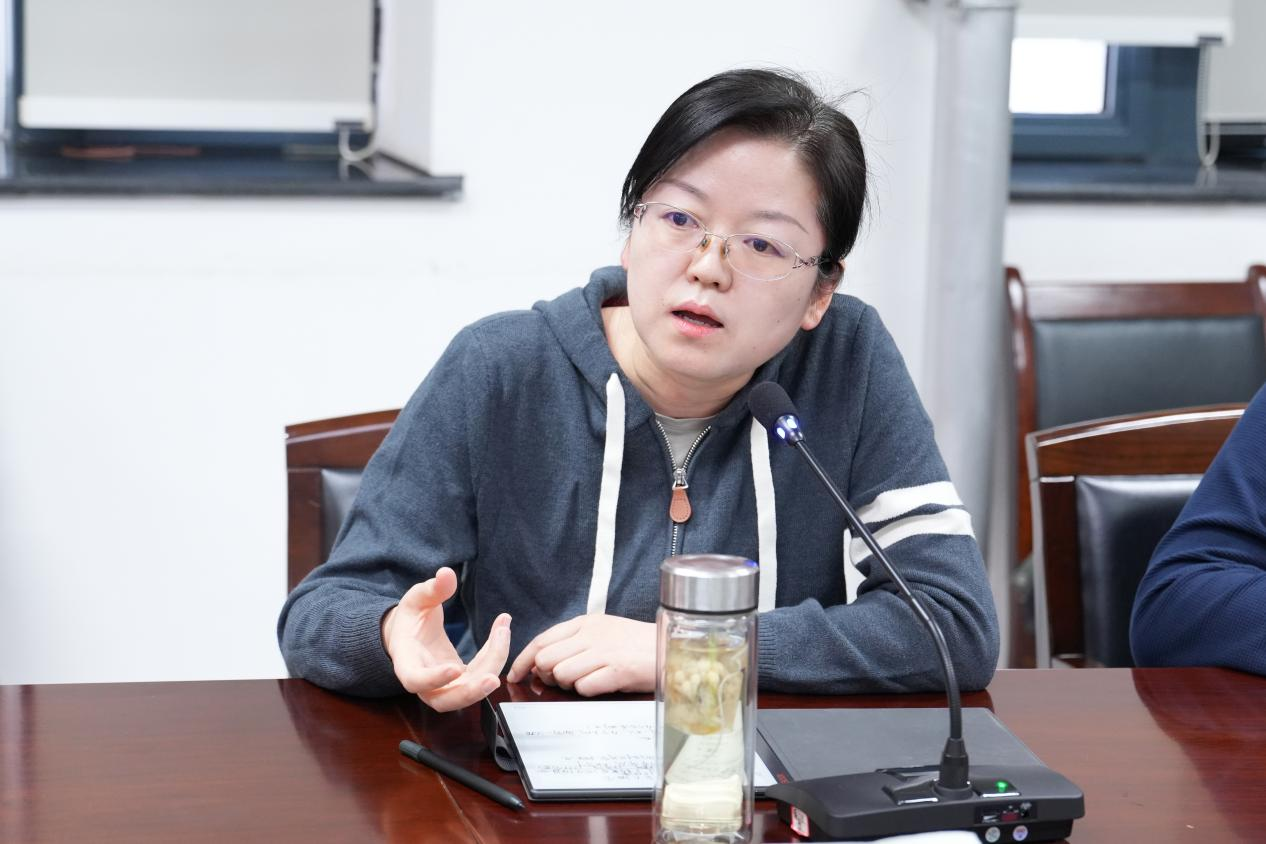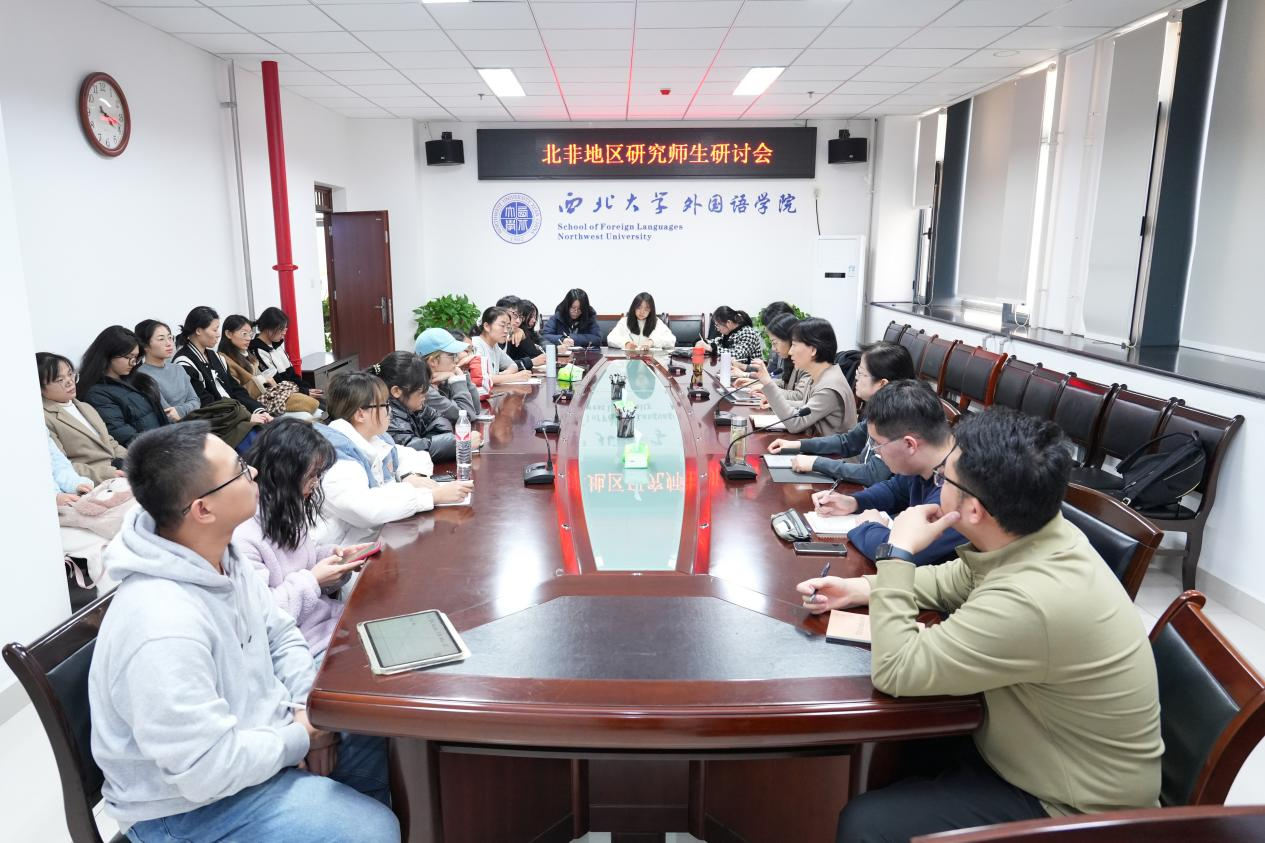On the afternoon of December 2, 2024, our school held a seminar on North African regional studies for faculty and students. The meeting was chaired by Dean Cao Ruonan, and attended by three faculty members from the North Africa research team, as well as undergraduate and graduate students from the 2023 and 2024 cohorts of the School of Foreign Languages.
Dean Cao Ruonan began by introducing the basic situation of the North Africa research team and encouraged students to choose their research countries and directions based on personal interests. She suggested that students engage in group discussions, collect materials systematically, and report regularly on their progress to define their research focus. She emphasized that the participation of undergraduates brought new energy to the team, highlighting the unique advantage of our school in cultivating future talents for regional and country-specific studies.

Dean/Professor Cao Ruonan
Afterward, under the guidance of Professor He Hua, each research team provided detailed reports on their current progress and engaged in discussions with the attending faculty and students about different countries and research directions. Professor He suggested that new students actively integrate into the team, combine their interests with a clear research direction, and explore academic entry points through practice.

Associate Professor He Hua
In the concluding remarks, Dean Cao pointed out that North African studies cover diverse issues such as language policy and ethnic identity, and academic breakthroughs require a focus on specific problems and a refined research approach. She expressed hope that through continuous practice and team collaboration, students could clarify their areas of interest, contributing to the deepening and development of North African studies.
This seminar not only clarified the research tasks and goals for the next phase but also further stimulated students' enthusiasm for research. It provided an important opportunity for strengthening the research team's reserve of talent and laid a solid foundation for future academic endeavors.

The venue